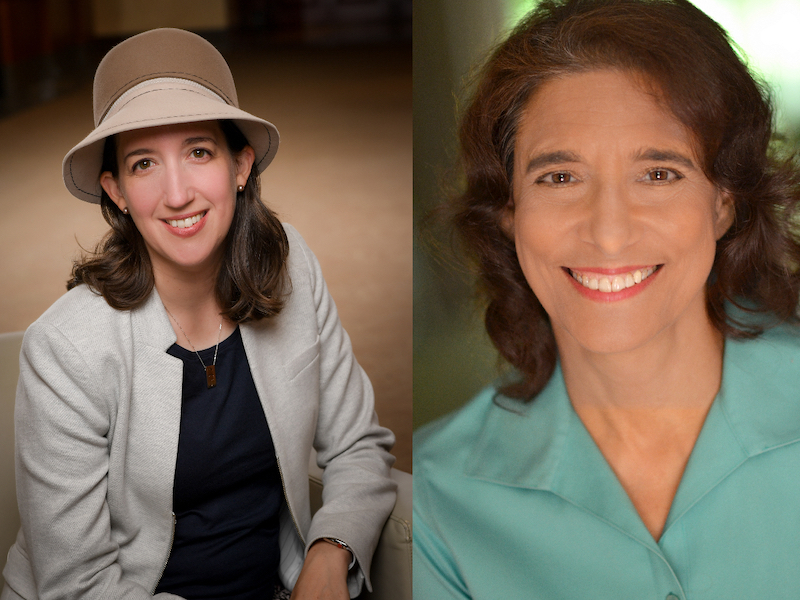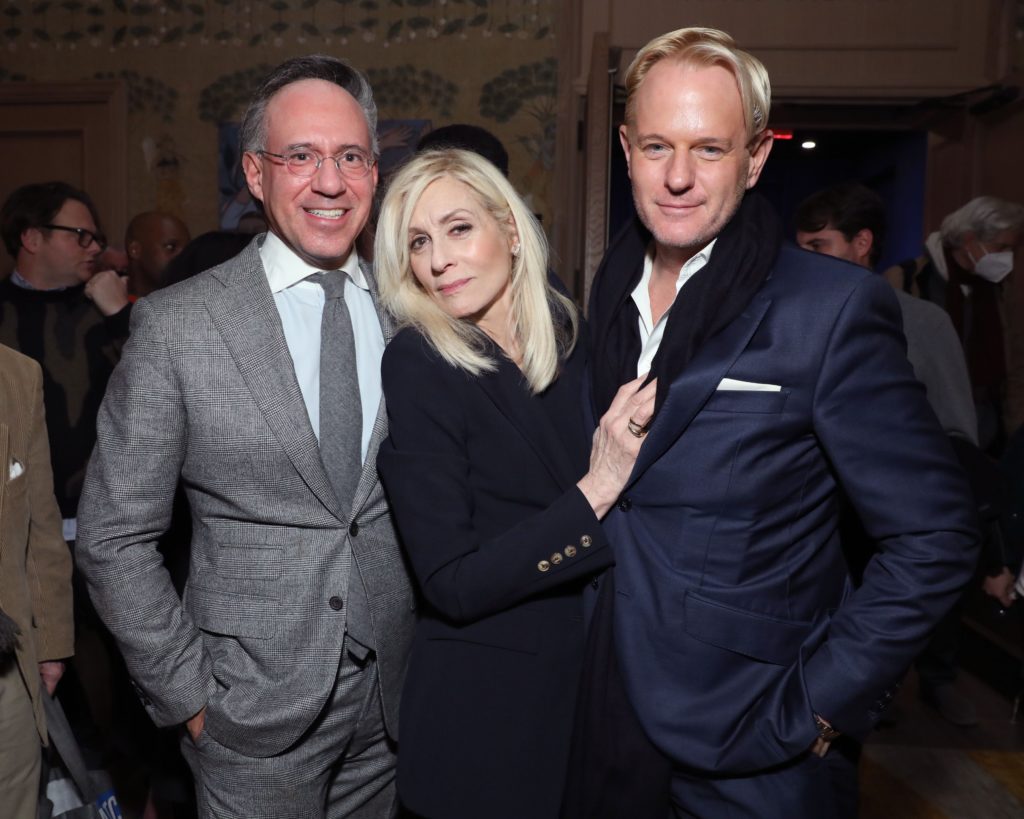Your Daily Phil: Jewish groups push Congress to increase NSGP + Showtunes and Torah
Good Wednesday morning!
FourJewish leaders, including Rabbi Charlie Cytron-Walker, who survived the synagogue attack in Colleyville, Texas, last month, testified before the House Homeland Security Committee on Tuesday, urging the allocation of more federal money for synagogue security and an easier process to apply for that aid.
The testimony is part of an organized push by Jewish groups seeking to double the money allocated in the Nonprofit Security Grant Program, which provides federal aid to religious institutions for physical security upgrades, from $180 million to $360 million. Last year, most of the institutions that applied to the program were rejected.
Calls to double the funding have grown louder since the Colleyville hostage-taking, and late last month, Senate Majority Leader Chuck Schumer (D-NY) pledged to push for the increased sum. At Tuesday’s hearing, Rep. Elissa Slotkin (D-MI) said “there’s still more we can do… in closing the $200 million funding shortfall.”
“Right now, there are far too many houses of worship that… are counting on the Nonprofit Security Grant Program to put them into place and help them feel more secure in their spiritual home,” said Cytron-Walker. “Right now, there are far too many houses of worship who won’t get the support they need.”
The hearing took place on the same day as a long-awaited Senate confirmation hearing for Deborah Lipstadt, who was nominated to be President Biden’s special envoy to monitor and combat antisemitism. Her hearing had been held up for six months by Republican senators who objected to her tweets criticizing members of the Senate Foreign Relations Committee. At the hearing, Lipstadt faced opposition from Sen. Ron Johnson (R-WI) but appears headed for confirmation after gaining the support of at least three Republican senators, including Sen. Marco Rubio (R-FL), who served as ranking member at the hearing, reportsJewish Insider‘s Marc Rod.
Cytron-Walker was joined by Eric Fingerhut, CEO of The Jewish Federations of North America; Michael Masters, CEO of the Secure Community Network, which coordinates security for American Jewish institutions; and Rabbi Yosef Konikov of the Chabad of South Orlando.
The witnesses also called for an easier and more transparent application process, and said that some synagogues forgo applying because the paperwork is so involved. They noted that institutions that are rejected aren’t told why, and Fingerhut said that some of the new funding should be used to streamline the approval process. “If everybody, as they wake up to this growing need, were to apply, the system would be completely overwhelmed,” he said.
The Jewish leaders focused more on “hardening” facilities than calling out the specific form of antisemitism driving the attacks. Masters said Jews face “salad bar terrorism,” where extremists mix and match stereotypes and conspiracy theories. He added, “It doesn’t matter, the ideology that’s coming through the door… We need to make sure that the door is locked and that the members of our community are alive.”
TEXTS IN CONVERSATION
‘Verses,’ a new podcast, connects the Bible and Broadway


Rabba Rachel Kohl Feingold (left) and Anita Silvert.
On their new podcast, “Verses,” Rabba Rachel Kohl Finegold and Jewish educator Anita Silvert use two kinds of texts to connect with listeners, reports eJewishPhilanthropy’s Esther Kustanowitz. “What makes a musical really succeed is its ability to tell a story that touches on not just the confines of the story on stage, but is able to address voices and themes and ideas and struggles that are universal,” Silvert said. “And that’s exactly what Torah does.”
Texts in conversation: Finegold is the director of education and spiritual enrichment at Congregation Shaar Hashomayim in Westmount, Quebec, and Silvert is an independent adult Jewish educator in Chicago. On each episode, the co-hosts select a song from the Broadway canon and match it with a selection from the Biblical canon, putting the texts in conversation with one another: for instance, comparing the relationship that Puerto Rican immigrants have to America in “West Side Story” to the relationship that wandering Israelites have to Israel; or using “Les Miserables” and a text from Exodus to consider the complexities of personal identity in the lives of Moses and the character of Jean Valjean.
Connecting to “canon”: The word “canon” applies to both Broadway and Bible, Finegold said, “and the word ‘verses,’ which became, of course, the name of the podcast, both are sacred to some people. And both are multilayered. So many of these classical themes that show up in Biblical text also show up in good art, in a good plotline… We’re forging new models of what spiritual leadership looks like,” Finegold said, “and I think that goes hand-in-hand with rethinking what we mean by teaching texts, or what we mean by Jewish studies.”
Increasing Jewish awareness: The podcast — which launched in November — is also breaking through to people who never considered the meaning of Jewish texts, Silvert said, including a musical theater friend of hers. “His Jewish awareness has not been great at all. But this has opened up an entire new world of questions that he has to ask on Jewishness that he never asked before. So it’s magical to see.”
CAMP FOR ALL
Camps must be fully accessible


Courtesy
“Picture this: you are sitting on the dock of your summer camp that’s nestled into the mountains. You’re watching the sunrise over the lake with your best camp friends by your side. You are surrounded by greenery, the sounds of nature and the closest town is 10 miles away. You and your friends are thinking about all the new activities you will try, the new friendships you’ll make and all the memories you’ll create in the summer ahead. It sounds like the perfect camp experience for any child, right?” writes Hailey Kessler, a student at Brandeis University’s Hornstein Program for Jewish Professional Leadership, in an opinion piece for eJewishPhilanthropy.
The challenge for those with physical disabilities or impairments: “The truth is camps that many call their ‘home away from home’ are not easily accessible to those with physical disabilities or impairments. Camps are often built in secluded areas, often in the mountains or on land that was once a forest. The reality is most camps have lots of hills, uneven terrain, gravel roads and other natural obstacles.”
Camps need to be more physically accessible: “Children who use wheelchairs, crutches or have any other physical disabilities should not be limited only to camps for children with disabilities. They should be able to attend mainstream camps with their friends and peers. As Judaism teaches, everyone is created b’tzelem elohim (in the image of God) and, regardless of disability, should be treated with kavod (respect), chesed (loving-kindness), and rahmanut (compassion). For this to be possible, camps must be more physically accessible to campers with physical disabilities or impairments so that they, too, can have the same transformative Jewish camp experiences as their peers.”
Kehila kedosha: “In recent years, especially with the effects of the pandemic, Jewish summer camps have appropriately focused significantly on mental health and how they can make sure every camper feels comfortable at camp. But what about making sure those with physical disabilities can also come to camp and feel cared for, safe and that they matter and their needs matter? Without providing access to those with physical disabilities, how can camp leaders create a true kehila kedosha (holy community) where every camper can be the best version of themselves and feel included?”
Worthy Reads
Big Giving: In 2021, the donors on the Chronicle of Philanthropy’s “Philanthropy 50” list gave nearly $28 billion to charity, with the median level of giving just above $100 million, but mostly in support of universities, hospitals, medical research and their own foundations, report Maria Di Mento and Ben Gose. “The list is a disappointment for charity advocates who had hoped that the broader giving in 2020 — which featured large gifts to food banks, racial-justice groups, historically Black colleges and universities, and human-service organizations — marked a turning point in giving by the ultrawealthy. ‘From this list, you would not know that we’re living through a global pandemic, and you would not know that as a society we’re grappling with racial inequity,’ says Chuck Collins, director of the Program on Inequality and the Common Good at the Institute for Policy Studies. ‘This gift list is completely disconnected from the reality of our society right now.’” [ChronicleofPhilanthropy]
Community Comms
Lead. Apply for the 2022 cohort of the Certificate in Jewish Leadership, presented by Spertus Institute in partnership with Northwestern University.
The Jewish Venture Philanthropy Fund, a Los Angeles based giving circle, has opened its 2022 grant cycle.
Be featured: Email us to inform the eJP readership of your upcoming event, job opening, or other communication.
Word on the Street
The American architect who designed Manhattan’s High Line urban park and renovated the Museum of Modern Art and a Stanford University researcher are among the winners of Israel’s prestigious Wolf Prize…
Marc Newburgh, CEO of Hillel Ontario, is stepping down at the end of June…
As of the end of January, Portugal granted citizenship to 56,685 descendants of Sephardic Jews, according to data provided by the country’s Ministry of Justice to the LUSA news agency…
The Montreal Holocaust Museum announced gifts of $15.7 million from the Ministère de la Culture et des Communications du Québec, and $11.8 million from the Azrieli Foundation in support of the construction of a new facility…
The University of California, Irvine received a $57.75 million gift from the estate of Audrey Steele Burnand in support of research into the causes of and treatment for depression…
Alro Steel cofounder Al Glick, a major donor to the University of Michigan and to his hometown of Jackson, Mich., died at 95.
Pic of the Day


Courtesy
The French Riviera Film Festival unveiled its 2022 official poster, featuring an original artwork titled “Girl On The French Riviera,” created exclusively for the festival by New York City-based, Iranian-Jewish artist Cindy Shaoul.
Birthdays


Monica Schipper/Getty Images for Netflix
Three-time Tony Award- and two-time Emmy Award-winning actress, Judith Light…
Grammy Award-winning songwriter of over 150 hits, Barry Mann (Imberman)… Singer-songwriter, inducted into the Songwriters Hall of Fame and the Rock and Roll Hall of Fame, Carole King (Klein)… Economist and a professor at Columbia University, Nobel laureate in economics in 2001, Joseph Stiglitz… Professor of history and modern Jewish studies at UCSD, Deborah Hertz… Israeli singer Shimi Tavori… Australian philanthropist and owner of a series of mineral and energy companies, Georgina Hope “Gina” Rinehart… Former governor of Virginia and past chair of the DNC, Terry McAuliffe, aka “the Macker”… Creator of the HBO series “The Wire” and NBC’s “Homicide,” David Simon… Theoretical physics professor at Columbia University and author, Brian Greene… Isaac Lieberman… Play-by-play announcer for ESPN’s men’s college basketball and for the Toronto Blue Jays, Dan Shulman… British broadcasting executive who is currently chief content officer at the UK’s Channel 4, Ian Katz… President of the U.S. education portfolio at the Charles and Lynn Schusterman Family Foundation, Julie Mikuta… Assistant adjunct professor of journalism at UCLA, Abigail Helaine “Abbe” Goldman… Managing director of Tiedemann Wealth Management, Jeffrey L. Zlot… Charleston, S.C., resident, Ellen Miriam Brandwein… Television and film actress, Margarita Levieva… Majority leader of the Minnesota state Senate, Jeremy R. Miller… Director of public policy and strategy for the Christians United for Israel Action Fund, Boris Zilberman… Area director for AIPAC, Jason Pressberg… Principal of Blue Zone Partners, Thomas Szold… Director at Real Chemistry, Carly Abenstein… Israeli-Arab living in Tel Aviv, Muhammad Zoabi…
Email Editor@eJewishPhilanthropy.com to have your birthday included.








